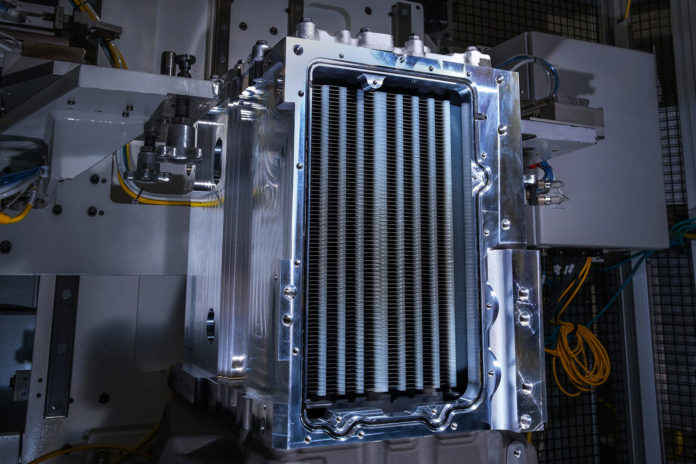General Motors is working on multiple fronts to move quickly towards zero-emission mobility. In addition to the pure electric vehicle fleet, it also explores the opportunities offered by a hydrogen fuel cell with the GM HYDTROTEC division.
In this context, the American company has collaborated with the French Liebherr-Aerospace to develop an HYDTROTEC hydrogen fuel cell technology-based electrical power generation system for aircraft applications. The two companies will develop an integrated system customized to the performance and economic requirements of commercial aircraft.
Based on GM’s HYDROTEC hydrogen fuel cell technology, the construction and testing of the demonstrator will take place in a Liebherr-Aerospace laboratory in Toulouse (France), where the French company is already working on the design and alternative propulsion systems for air transport. The demonstrator will incorporate GM’s precisely crafted fuel cells, HYDROTEC power cube, and fuel cell system, along with the GM’s controls and models.
“Aircraft are a great litmus test for the strength and versatility of our HYDROTEC fuel cells,” said GM Executive Director – Global HYDROTEC Charlie Freese. “Our technology can address customer needs in a wide range of uses – on land, sea, air or rail, and this collaboration with Liebherr could open up new possibilities for aircraft, transitioning to alternative energy power sources.”
The fuel cell system is said to offer lower emissions and less noise than conventional aircraft propulsion systems.
Through its relationship with Honda, the American giant is one of the most advanced fuel cell developers in the world, with technology that covers many applications, now including aerospace.
“The change from the conventional to a hydrogen technology-based electrical power generation system means major systems modifications on board the aircraft that could result in better, more efficient performance of the plane,” explains Francis Carla, Managing Director and Chief Technology Officer, Liebherr-Aerospace & Transportation SAS.
“This we want to prove and test thoroughly. The advantage of GM’s HYDROTEC fuel cell technology is that it has shown promise in extensive automotive and military programs, where it has shown to be reliable from the engineering and manufacturing perspectives. We are developing low emissions aerospace solutions.”
